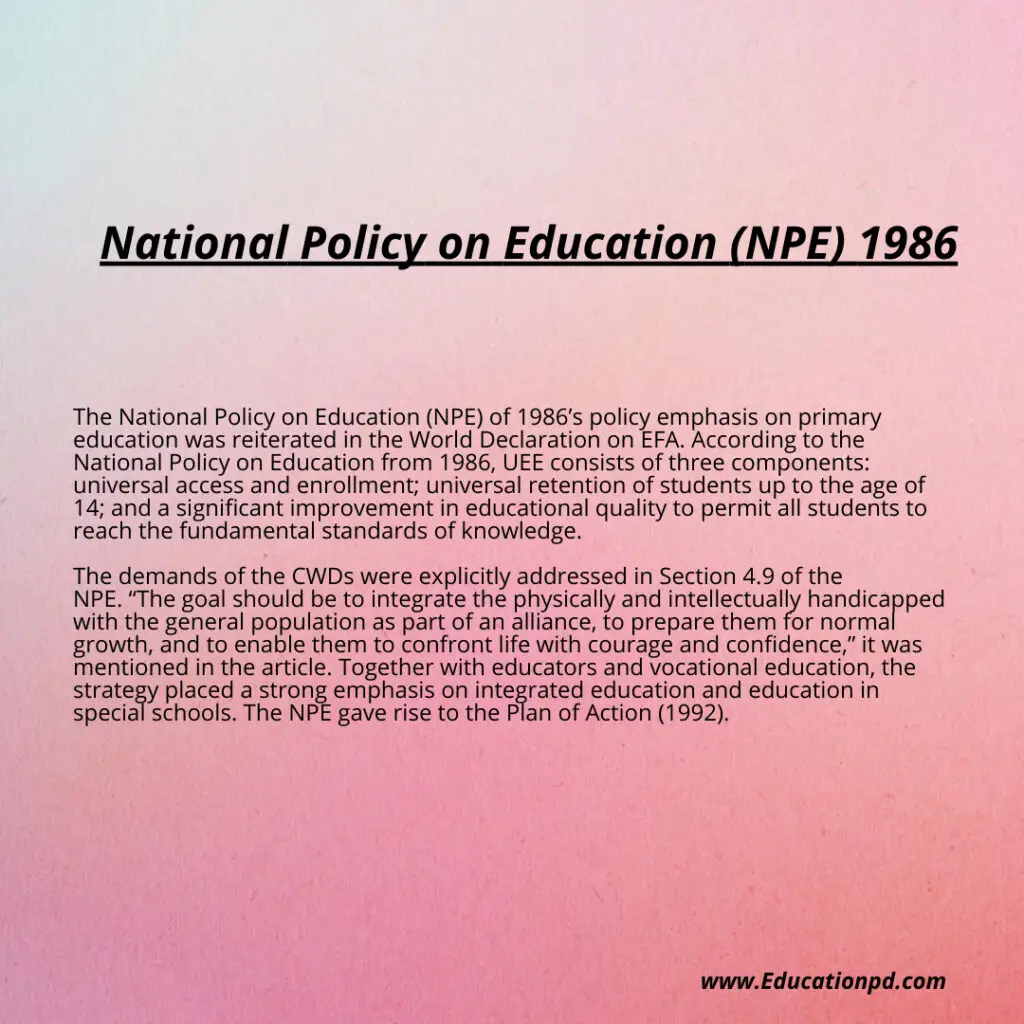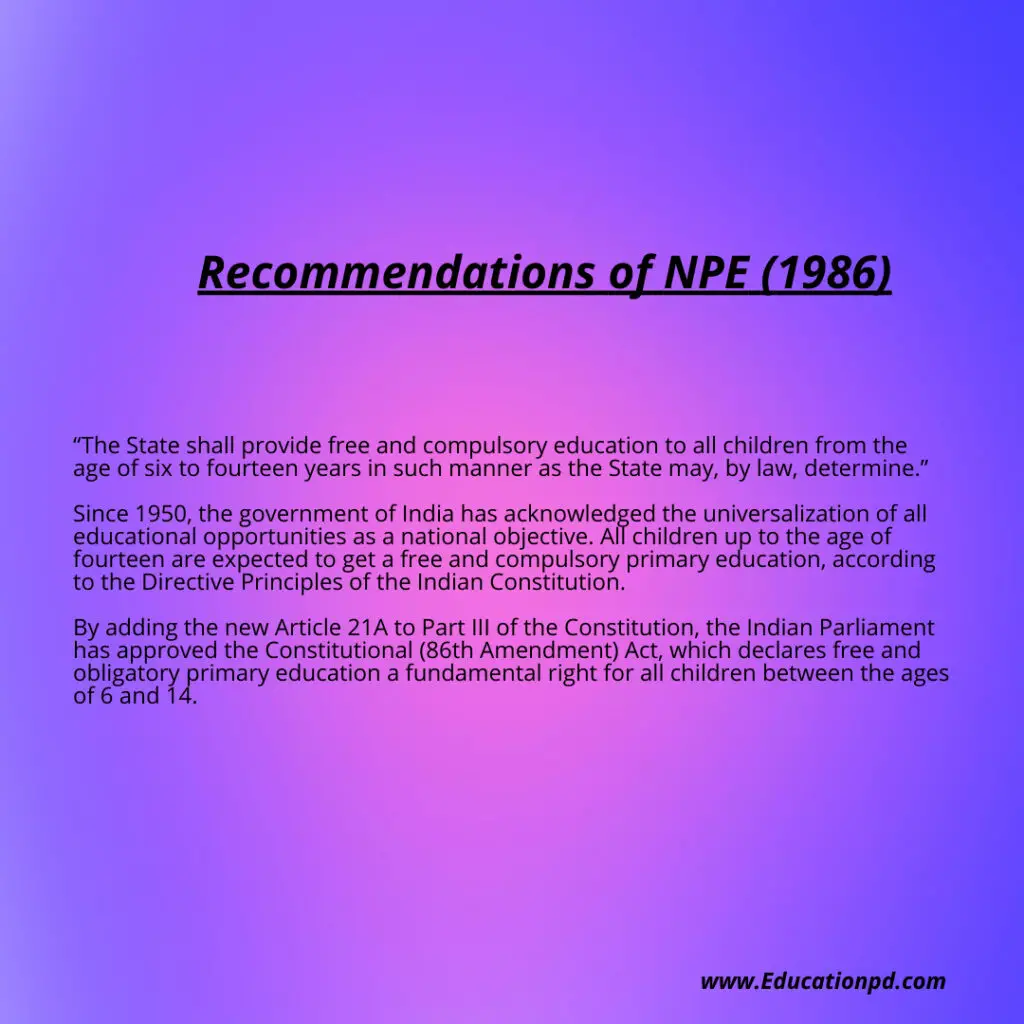Back to: Early Childhood Care and Education B.ed Notes, IGNOU Notes, M.A Notes, Graduation Notes
Recommendations of NPE (1986)
“The State shall provide free and compulsory education to all children from the age of six to fourteen years in such manner as the State may, by law, determine.”
Since 1950, the government of India has acknowledged the universalization of all educational opportunities as a national objective. All children up to the age of fourteen are expected to get a free and compulsory primary education, according to the Directive Principles of the Indian Constitution. By adding the new Article 21A to Part III of the Constitution, the Indian Parliament has approved the Constitutional (86th Amendment) Act, which declares free and obligatory primary education a fundamental right for all children between the ages of 6 and 14.

National Policy on Education (NPE) 1986
The National Policy on Education (NPE) of 1986’s policy emphasis on primary education was reiterated in the World Declaration on EFA. According to the National Policy on Education from 1986, UEE consists of three components: universal access and enrollment; universal retention of students up to the age of 14; and a significant improvement in educational quality to permit all students to reach the fundamental standards of knowledge.
The demands of the CWDs were explicitly addressed in Section 4.9 of the NPE. “The goal should be to integrate the physically and intellectually handicapped with the general population as part of an alliance, to prepare them for normal growth, and to enable them to confront life with courage and confidence,” it was mentioned in the article. Together with educators and vocational education, the strategy placed a strong emphasis on integrated education and education in special schools. The NPE gave rise to the Plan of Action (1992).
